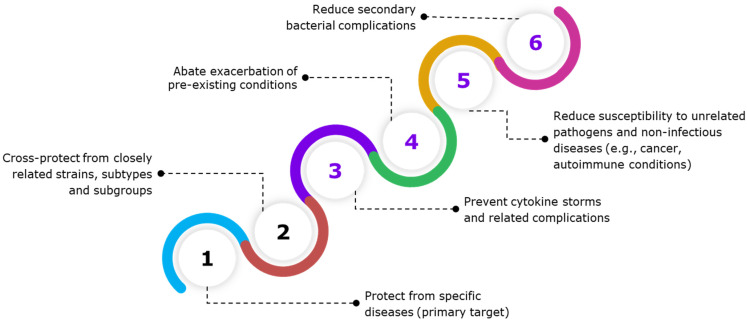Figure 3.
The figure shows the specific and para-specific effects of vaccines. Vaccination often elicits a controlled immune response, containing a mix of pro-inflammatory and anti-inflammatory cytokines, thereby maintaining immune homeostasis. Beyond protecting against the target pathogen, vaccines also exhibit other immune benefits. Some vaccines may confer protection against closely related pathogens that share conserved antigenic epitopes. However, vaccines have also shown para-specific effects, which are non-specific or heterologous effects that protect or reduce host susceptibility to unrelated infectious and non-infectious diseases. Para-specific effect (PSE) of vaccines prevents or lowers the host’s susceptibility to secondary bacterial infections, sepsis, aggravation of pre-existing conditions, and non-infectious diseases, such as cancer and cardiovascular diseases, allergic asthma, as well as autoimmune diseases, such as type 1 diabetes.

